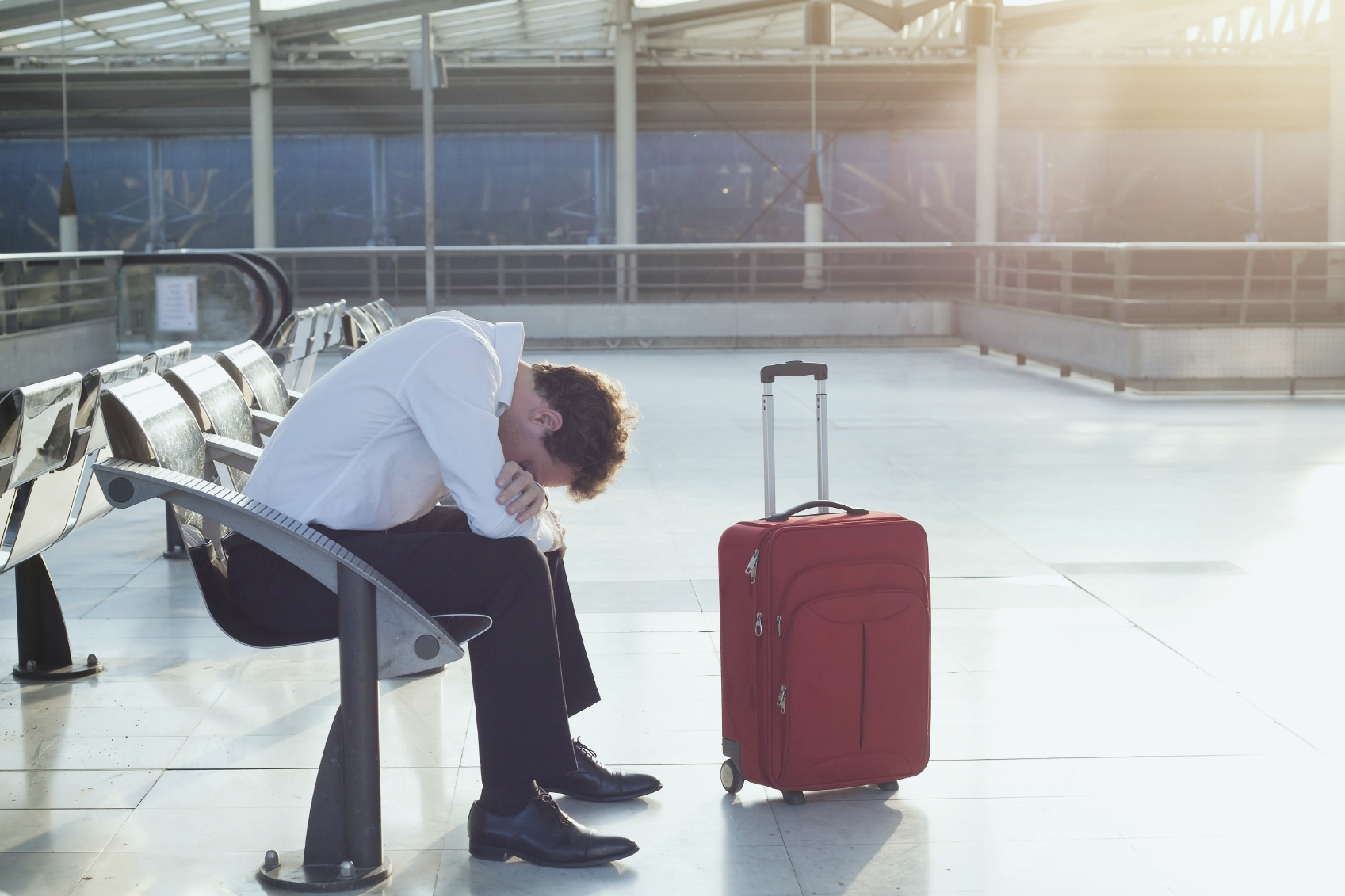9 ways to beat jet lag
Part of our series on how to be a better business traveler

A free daily email with the biggest news stories of the day – and the best features from TheWeek.com
You are now subscribed
Your newsletter sign-up was successful
If you're going on a long trip to a different time zone, you might be dreading the looming threat of jet lag. Luckily, we've dug up some handy tips to help you avoid it altogether.
1. Prep yourself
Preventing jet lag starts at home. Since the body's internal clock can take days to get used to a new rhythm (it can only shift its timing by about one hour forward or two hours backward each day), it's best to get a head start on the transition. To get ready for a flight heading east, start going to bed and eating meals earlier than normal. For trips in the other direction, do the opposite and stay up late.
The Week
Escape your echo chamber. Get the facts behind the news, plus analysis from multiple perspectives.

Sign up for The Week's Free Newsletters
From our morning news briefing to a weekly Good News Newsletter, get the best of The Week delivered directly to your inbox.
From our morning news briefing to a weekly Good News Newsletter, get the best of The Week delivered directly to your inbox.
2. Fly at night
Taking a red eye flight will give you the opportunity to sleep on the plane. When you get to your destination, you'll feel fully rested and ready to explore.
3. Don't go to sleep when you arrive
After landing, you may be tempted to take a quick nap to recover from all that traveling. Resist the urge and hit the streets instead. Napping will only lead to staying up late, preventing your internal clock from achieving its much-needed reset. The earlier you can start operating on the new time schedule the better: That means eating meals and sleeping according to the clock, not what your body wants to do.
A free daily email with the biggest news stories of the day – and the best features from TheWeek.com
4. Get some sun
The sun does wonders for getting your body back on track, so make sure to get outside once you've arrived. The sunlight tells your body it's still daytime, so it shouldn't release any melatonin that will make you sleepy. When traveling west, get out later so you will stay awake. Going east, get more morning sun so you'll go to bed sooner.
5. Hack your biological clock
Your body in part uses light and darkness to tell what time it is (and whether that time is bedtime). You can get over jet lag faster by exposing your eyes to light at specific times. Knowing how much light and dark to expose yourself to is confusing and kind of a drag, so luckily there are apps available to help you schedule your light intake.
6. Drink coffee (responsibly)
Coffee can help you get through the day — but don't overdo it. One cup in the morning and one in the afternoon will help keep you awake and alert. If you drink too much, it will just keep you up late and make you jittery. In the interest of falling asleep on time, don't drink any caffeine before crawling into bed.
7. Cheat with supplements
There is some evidence that taking melatonin supplements three to four hours before bed will help you get to sleep. The idea is that it will push your clock forwards — perfect when traveling east.
8. Eat light, but well
You're going to be tired and disoriented while you adjust to vacation time, and junk food is only going to make you feel worse. Smaller meals that are high in vitamins will help you feel more alert and happy.
9. Exercise
Scheduled exercise has been shown to help alleviate the signs of jet lag. If you work out at the same time every day (both at home and in your new location), it will help your body sync to the new time. Before you leave for your next trip, set up a routine and stick with it when you travel.
-
 6 exquisite homes with vast acreage
6 exquisite homes with vast acreageFeature Featuring an off-the-grid contemporary home in New Mexico and lakefront farmhouse in Massachusetts
-
 Film reviews: ‘Wuthering Heights,’ ‘Good Luck, Have Fun, Don’t Die,’ and ‘Sirat’
Film reviews: ‘Wuthering Heights,’ ‘Good Luck, Have Fun, Don’t Die,’ and ‘Sirat’Feature An inconvenient love torments a would-be couple, a gonzo time traveler seeks to save humanity from AI, and a father’s desperate search goes deeply sideways
-
 Political cartoons for February 16
Political cartoons for February 16Cartoons Monday’s political cartoons include President's Day, a valentine from the Epstein files, and more